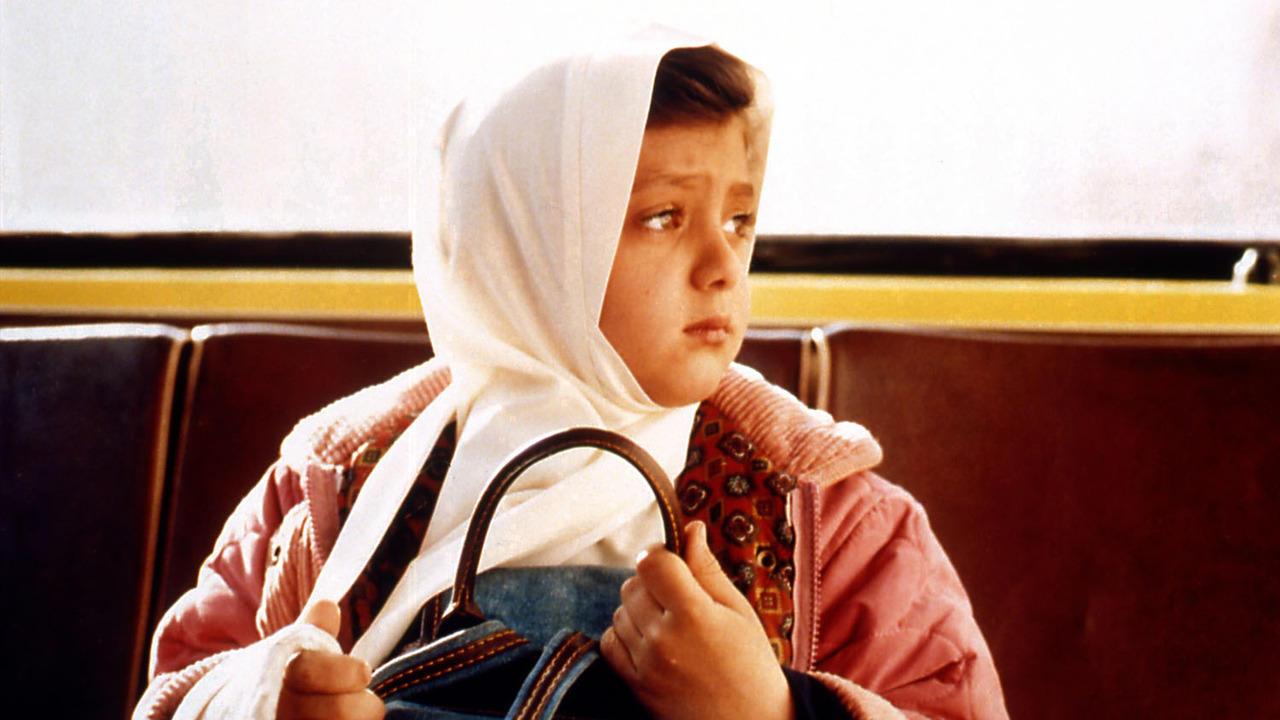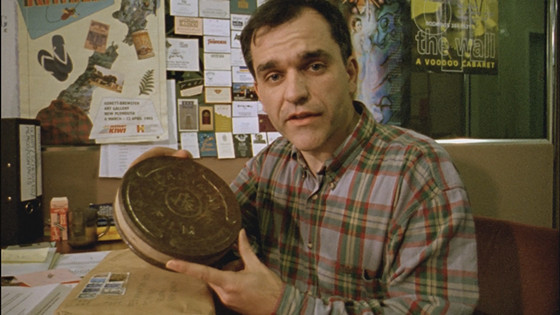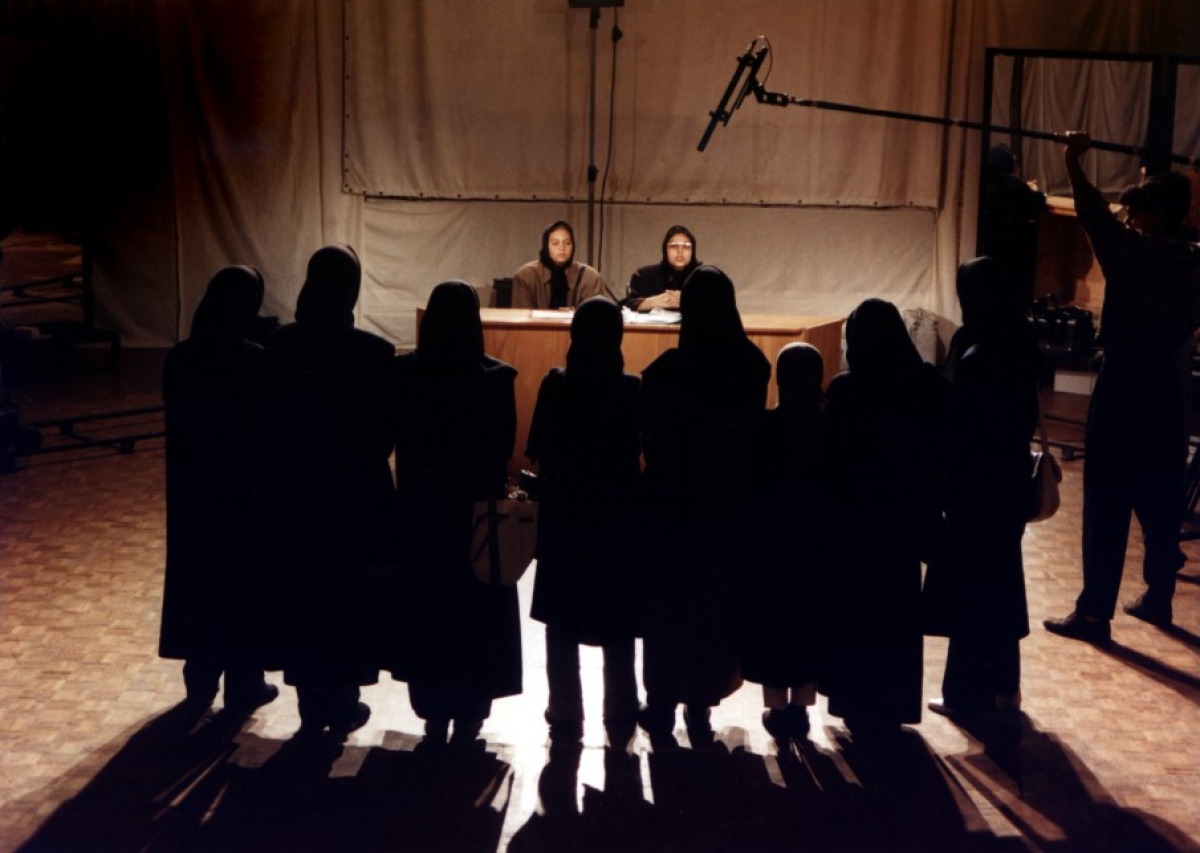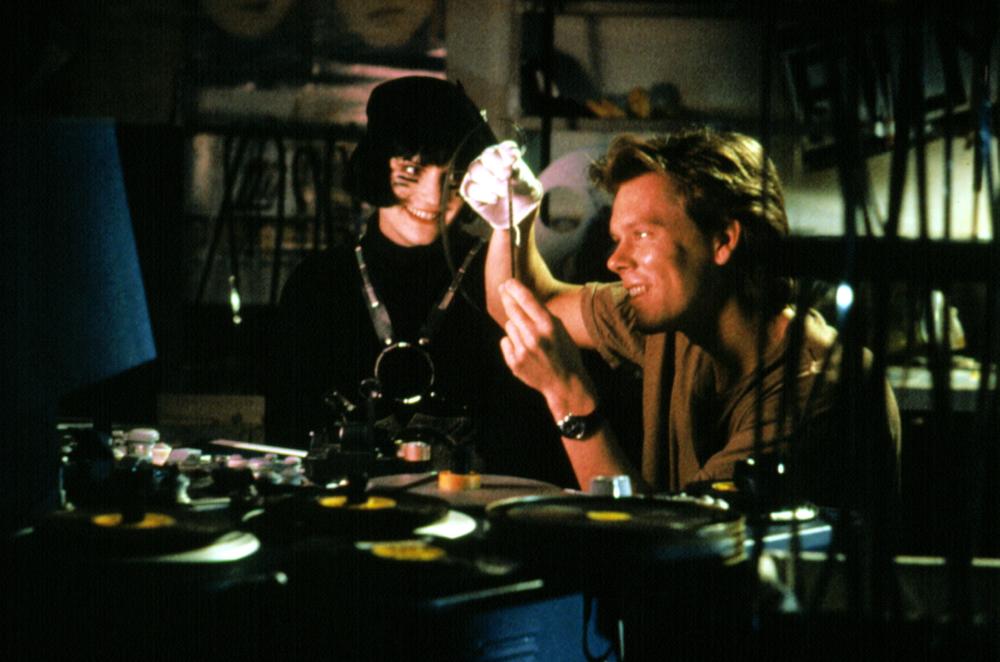6. The Mirror

Following up with his adorable and simply wonderful family film The White Balloon (scribed by Abbas Kiarostami), Jafar Panahi followed up his debut with another adorable and simply wonderful family fun, but with a metatextual twist that delights in the similarities between fiction and real life.
Featuring the same child actress in The White Balloon, Aida Mohammadkhani, who plays in both movies a young child trying to navigate her way through an adult world that is not always too caring towards the plights of young children, her efforts to demand attention from the adults that surround her in life are simultaneously aggravatingly cute and adorably irritating.
The Mirror spends most of its running time amongst traffic, beginning with the young girl, Mina, wondering why her mum isn’t there to pick her up from school – this sets her on a trek around town, from buses to bus-ports to taxis to generous drivers, trying to find her way back home.
What occurs in the middle of the film is a total disruption, causing a delay in filming and we see Aida, the other actors, the camera-crew, and Panahi himself trying to figure out her problem.
The film continues on as it was before, about a young girl trying to find her mother and her way home, but now it’s about Aida and not Mina, and the context for her adventure back has now been completely shifted.
It’s remarkable to see how similar both halves to The Mirror are, showing how similar the problems of fictional films are to the problems of real life, even if they are the simple problems of children.
7. Forgotten Silver

Following in the tradition of classic BBC’s tendencies to troll their audience for no good reason other than to have a laugh (like they did with the Spaghetti Harvest news story and Ghostwatch), Kiwi director Peter Jackson, back when he was known for making grisly little comedy-horror films before moving onto blockbuster behemoths, did something similar with his medium-length TV-“documentary” Forgotten Silver, an extraordinary and unique look into the life of filmmaker Colin McKensie and all his uncredited, yet history-defining contributions to cinema.
Peter Jackson takes a jovial aim at historical revisionism that feels cheeky throughout the entirety of the film, but there’s also a quiet joy in how Jackson redirects the landmarks in cinema’s history to this little nation in the southwestern Pacific Ocean – it would only be six years later that Jackson, and an array of New Zealand talents, did end up redefining cinema’s history with the Lord of the Rings trilogy (Colin would’ve been proud).
8. Ulysses’ Gaze

And now for a film that delves into the importance of the medium’s legacy and historical value, as opposed to their creation. The poetic and very European Greek director Theo Angelopoulos put out his best effort (arguably) in the year of cinema’s 100th anniversary with Ulysses’ Gaze, starring Harvey Keitel as a film director by the name of A who treks through the ravaged Balkans to find lost reels of historical film that he deems integral to the culture of Greece.
As A ventures through, finding less and less hope the further he goes in, he rambles (sometimes drunkenly) with folks like S (Erland Josephson), lamenting nostalgically on the old greats of cinema, filmed in Angelopoulos’ typically slow-moving, time-spanning, technically audacious, and beautiful mastered tracking shots that can last up to nine minutes.
Angelopoulos has utilised the power of communal art amidst political turmoil before, such as the theatre company in The Travelling Players who escape their war-ravaged environments by turning to the stage, and is a filmmaker who has a confident grasp on the political and the poetic strengths of his work.
If you hold the history of cinema as a high priority, Ulysses’ Gaze may be the perfect film of Angelopoulos’ oeuvre for you, a wonderful piece of work complemented by the immensely powerful acting of Keitel and the astonishingly chilly cinematography, it is felt in every frame of Ulysses’ Gaze that this was coming from a filmmaker who took his craft and vision seriously because he took the medium as a whole seriously.
9. Salaam Cinema

A little risky putting this “film” here since it appears to a through-and-through documentary. Though as this extraordinary piece of work suggests, this documentary about the making of a film is indeed the film itself. Although Mohsen Makhmalbaf’s identity was stolen and used to trick a family in Closeup, the director himself is not one to shy away from pulling tricks himself.
Salaam Cinema shows the audition process for Makhmalbaf’s next “film”, with lines crowding around the theatre filled with hopeful folks determined to be an acting star. But as he reveals to the hopeful actors, their audition was indeed their performance, meaning these filmed auditions were the film they were auditioning for – quite the mind-fudge.
This intellectual exercise is made entertaining throughout its duration as Mohsen battles back and forth with the aspiring actors in spiralling and thoroughly engaging arguments on the lies and deceptions that come with making films. They may feel cheated or slighted by what they may think is a cheap and hopeless shot at fame, but these folks have been immortalised in one of the most fascinating exposés of the allure of filmmaking.
10. The Big Picture

This Is Spinal Tap holds the title of one of the best mockumentaries of all time, perhaps even the very best. The film’s/band’s lead guitarist, actor Christopher Guest, went on to direct a few cult mockumentaries of his own, including Waiting for Guffman (about an eccentric theatre director), Best in Show (about dog shows), and A Mighty Wind (about the reunion performance of a folk band).
But before all these, he made his directorial debut with a standard feature narrative, all about the ins and outs of the filmmaking process.
After receiving an award for his independent short film, Nick Chapman (Kevin Bacon) is recruited by a Hollywood executive to begin work on his debut feature film, a dream come true for any budding filmmaker.
But as is usual for the business-minded executives, Nick’s vision for his low-budget and low-appeal art-film becomes more and more bastardised with more and more people sticking their fingers in the pie, showing how the creative process is sometimes generated more by the stakeholders and not the actual creative team.
It’s an amusing insight into how many productions probably play out in Hollywood, showing it’s not just Nick’s reputation and artistic integrity being put at risk, but his relationships with the people closest to him as well, especially those he works with.
Funnily enough, The Big Picture ends up as a very middle-of-the-road film with all story-strands and character arcs nicely tied off with not much room for ambiguity, but it seems to fit this kind of film, especially given how damn likeable Bacon’s character, who for the most part plays the straight man in this comedic universe of filmmaking in a charmingly grounded way, you feel that he really does deserve to have all his greatest dreams come true after all.
Author Bio: David Morgan-Brown is an Australian lover of movies, films, flicks, and kino pictures. He does written reviews for Colosoul, video reviews for Flim Reviews, and does comedic skits with his mates for Carpool — go laugh with (or at) him.